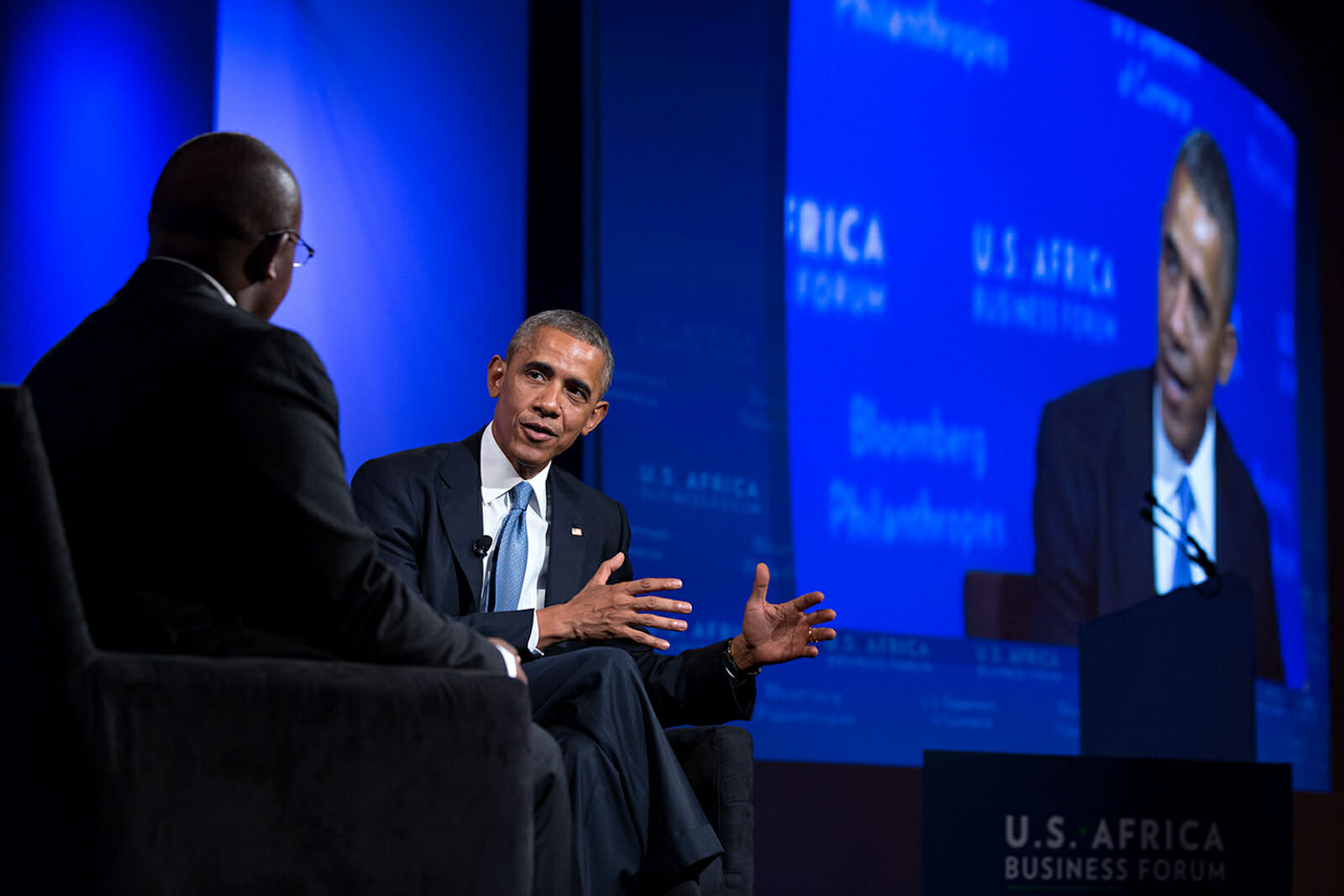
Obama Must Stay Committed to Africa
As most Africans continue to eke out a living, surviving on $1.25 a day, President Obama and his family are preparing for their August vacation at a $20 million estate on the Massachusetts seashore. This comes on the heels of the first family’s $100 million, eight-day visit to the three African countries–Senegal, South Africa, and Tanzania. Africans are now wondering if President Obama is serious about his promises to engage the continent. The trip appeared more like a royal excursion, with Africans feeling Obama may not be able to relate to their poverty situation.
The Obama administration did set the tone for an economic engagement of sub-Saharan Africa. However, he has to now follow through on programs for Africans to reach their potential of achieving self-reliance. The U.S. Congress also needs to be on board, since decision makers have told me that “Africa is as far from the United States as you can travel–we know little about it–and most of us have never been there.”
“So what can we (Africans) expect from Mr. Obama’s visit,” several people asked. One businessman noted that he works 24/7 in his family business and struggles to meet the payroll, provide for his family, and educate his children. He had hoped Obama would announce programs to infuse capital into small and medium-size business enterprises and to help create new jobs.
Obama’s $7 billion power generation pledge dominated media coverage, overshadowing the upcoming August African Growth and Opportunity Act (AGOA) Forum to be held in Addis Ababa, Ethiopia. The AGOA could have been Obama’s hallmark, extending permanently the duty-free and access-free benefits for African manufacturers. He also could have dove-tailed the annual event with the proposed U.S.-Africa Summit.
The President’s trip was touted by some as playing catch-up with China, which currently dominates the sub-Saharan African economy, by controlling natural resources, and trade with many of the countries. African leaders have said that U.S. efforts may prove to be too little–too late. However, I believe it is worth trying if we are serious about engaging in sub-Saharan Africa.
A good start would be for President Obama to hold a video-conference session at the AGOA Forum, where most of the African trade and finance ministers and business leaders will be present. The AGOA could become the “growth engine for Africa,” benefiting from the export of processed and manufactured products to U.S. markets. However, the U.S will need to also remove the many trade barriers on Africa’s agricultural products.
Obama focusing on young African leaders while in South Africa, will need to invite Africa’s most qualified students to attend American universities, returning afterward to partake in their country’s future. This would further emphasize the importance of education–an additional economic driver. On a diplomatic note, we cannot afford to criticize China for its resource extraction policies in Africa, until we examine our own practices, since there are claims of environmental degradation by American companies in Nigeria, Angola, Equatorial Guinea, Congo, and several other African countries.
The “Power Africa Initiative” was well received, possibly providing 10,000 megawatts of electricity for some 20 million households and businesses in six African countries. At the same time, several private sector businesses committed an additional combined $9 billion to the electricity program.
In Africa where over eighty percent of the villages are without electricity, experts say it will take almost $300 billion to bring the continent out of darkness. The U.S. power commitment is a good start, but to make a real difference the U.S. will need to take the lead by encouraging Foreign Direct Investment (FDI) for a long-term solution–a meaningful investment in Africa’s future.
Africa’s future will depend on participating in the global economy. Hence the emphasis needs to be on trade which is the equalizer. The U.S. needs to help Africa gain momentum in sustainable development, job creation, education, agricultural mentoring, infrastructure, and better health care at the village level. If President Obama keeps his promises to fully engage Africa, poverty can possibly be eradicated by 2030.

